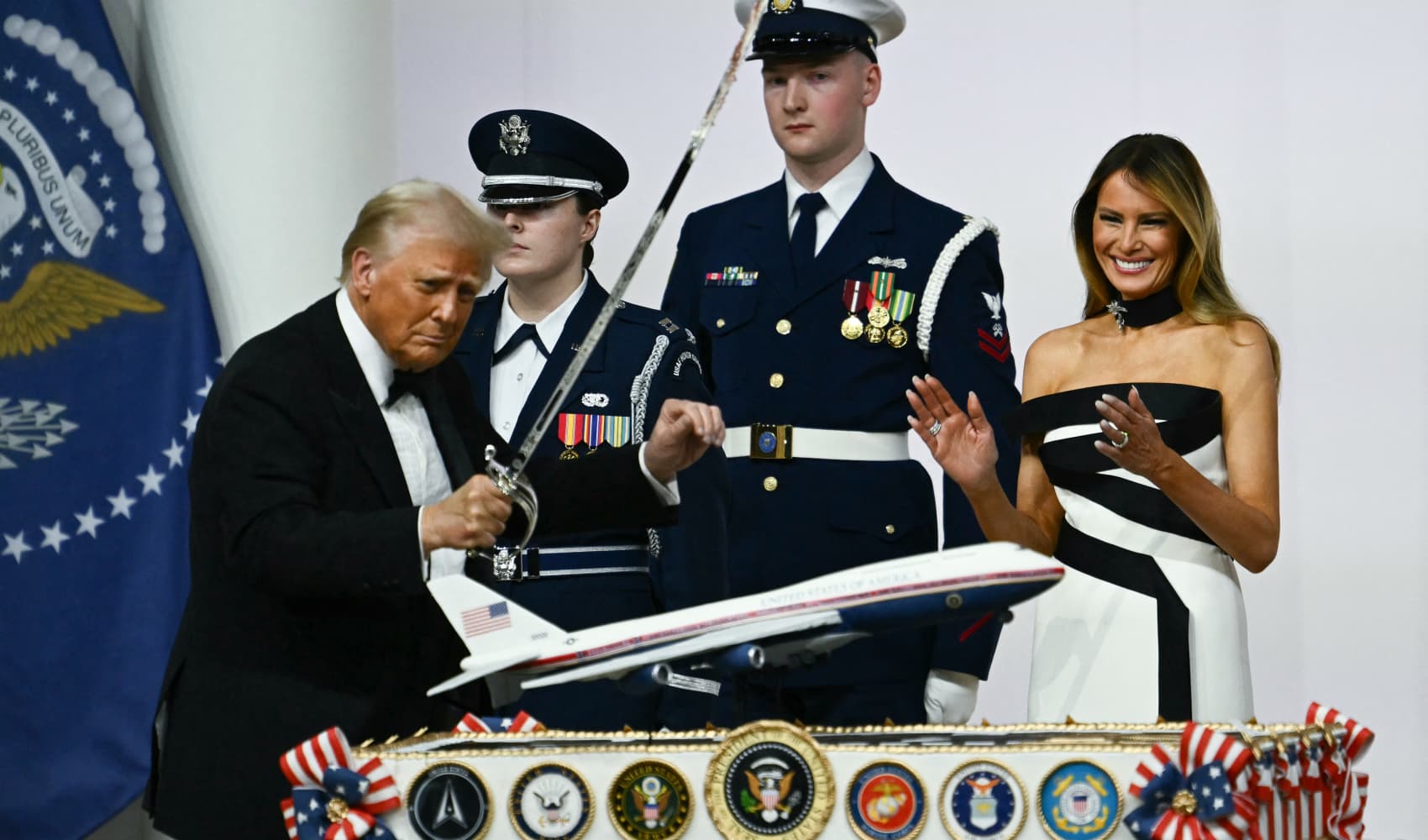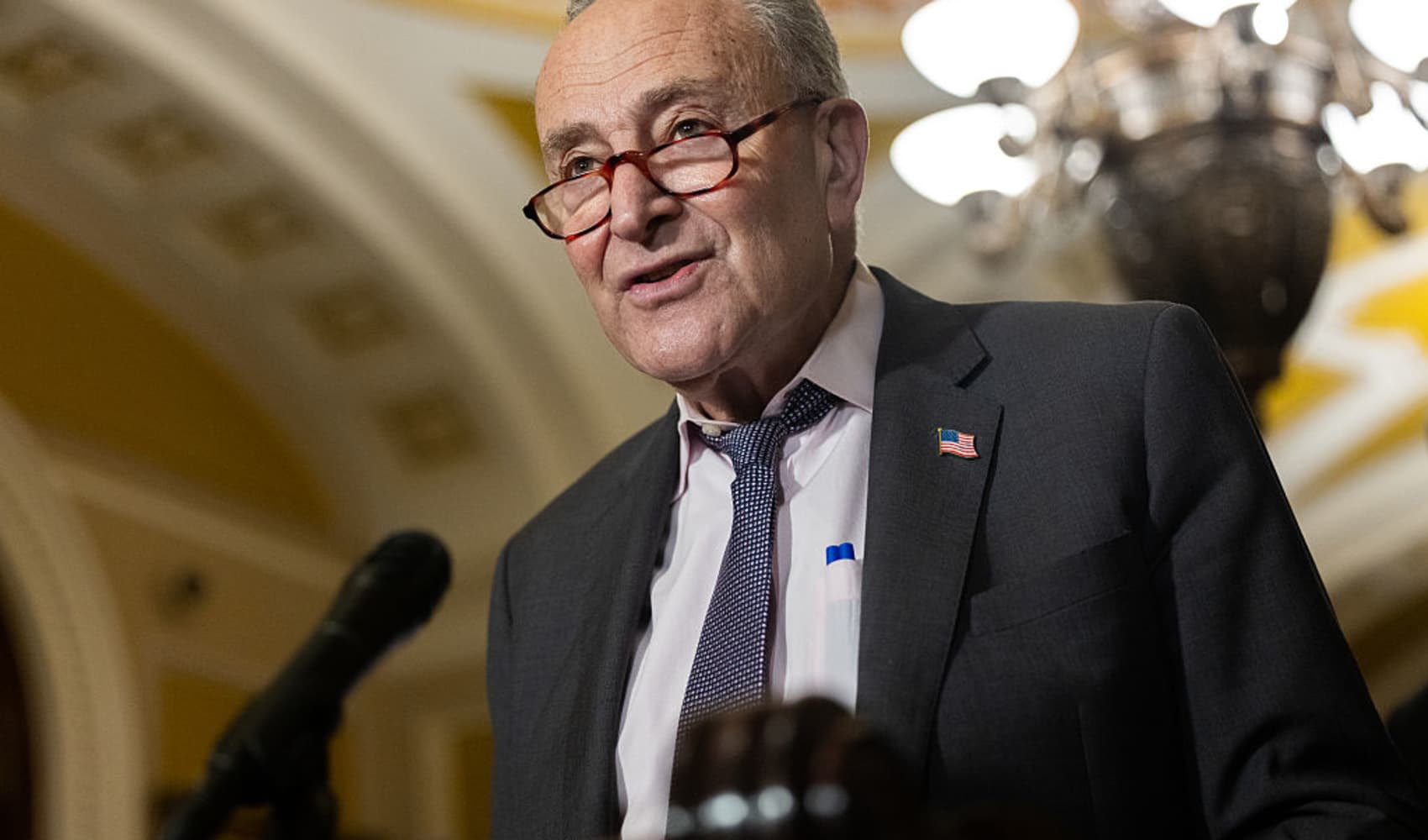Air Force One in Crisis? L3Harris May Have the Answer!
L3Harris Takes Flight: Modifying Qatari Jet as Air Force One Contingency
Introduction: Is This the Future of Air Force One?
For years, the iconic Air Force One has symbolized American power and prestige, soaring through the skies as a flying White House. But what happens when the future of this symbol is grounded by delays and budget overruns? Enter L3Harris Technologies, poised to potentially step in and modify a used Qatari Boeing 747. Could this be the backup plan that saves the day and gets the presidential plane back on track? It's a fascinating twist in a saga that has seen its fair share of turbulence.
The Boeing Blues: A Presidential Plane Grounded in Delays
Boeing's efforts to retrofit two 747 jumbo jets into the new Air Force One have been, to put it mildly, a bumpy ride. Years behind schedule and more than $2 billion over budget, the project has become a headache for everyone involved. Think of it as trying to renovate your kitchen, but instead of a few weeks, it drags on for years, and the costs skyrocket. It's a project that has tested the patience of even the most seasoned leaders.
The Original Agreement: A Trump Era Deal
Remember that deal President Trump struck with Boeing during his first term? The aim was noble: to secure the future of Air Force One with modern, state-of-the-art aircraft. But somewhere along the way, the project hit some serious headwinds. What went wrong? We'll delve into that shortly.
L3Harris to the Rescue? A Potential Game Changer
Now, L3Harris Technologies enters the scene. They're reportedly working to modify a used Qatari government jumbo jet – a Boeing 747, no less – that could potentially become a new presidential plane. This could be a strategic maneuver to ensure the U.S. has a viable option should the Boeing project continue to falter. It's like having a spare tire in the trunk, just in case.
Who is L3Harris Technologies?
L3Harris Technologies is a big name in the aerospace and defense industry, known for their expertise in modifying and upgrading aircraft. Their involvement suggests a serious intent to find a solution to the Air Force One conundrum.
The Qatari Connection: A Plane Fit for a President?
Why a Qatari jet? Well, these aircraft are known for their luxury and advanced technology. The used Boeing 747 in question could offer a quicker and potentially more cost-effective alternative to the existing Boeing project. Imagine repurposing a high-end mansion instead of building one from scratch; sometimes, it's just more practical.
Trump's Previous Interest: A Glimpse into the Future?
Interestingly, President Trump reportedly took a look at this very Qatari plane this past winter when it was parked in Florida. Was that a hint of things to come? It certainly adds another layer of intrigue to the story.
Cost Considerations: Saving Taxpayer Dollars
With the Boeing project ballooning in cost, the possibility of modifying a used Qatari jet raises a crucial question: Can it save taxpayer dollars? The answer is likely yes, as repurposing an existing aircraft can be significantly cheaper than building and customizing one from the ground up. It's about being fiscally responsible while maintaining the highest standards of security and functionality.
The Boeing Budget Overruns: A Cause for Concern
The sheer scale of the budget overruns on the Boeing project has undoubtedly fueled the search for alternative solutions. Every dollar saved is a dollar that can be used elsewhere, especially during times of economic uncertainty.
Security and Technology: Meeting Presidential Standards
Of course, any Air Force One aircraft must meet stringent security and technological requirements. This isn't just about luxury; it's about ensuring the President can communicate securely and remain safe in any situation. L3Harris Technologies will need to outfit the Qatari jet with advanced communication systems, secure networks, and defensive countermeasures.
The Modification Process: What's Involved?
Modifying a Boeing 747 to meet Air Force One standards is no small feat. It involves everything from reinforcing the airframe to installing sophisticated communication equipment and creating a secure command center in the sky.
The Timeline: When Can We Expect a New Air Force One?
The million-dollar question is: When can we expect a new Air Force One? If the L3Harris project moves forward, it could potentially deliver a presidential aircraft sooner than the Boeing project. However, significant modifications still need to be made, and rigorous testing is essential.
The Impact of Delays: Why Time is of the Essence
The ongoing delays in the Boeing project have created a sense of urgency. A reliable Air Force One is crucial for national security and presidential travel, so finding a solution quickly is a top priority.
Political Implications: A Hot Topic for Debate
The future of Air Force One is sure to be a hot topic in political circles. Democrats and Republicans alike will likely have strong opinions about the best path forward. It's a project that transcends party lines, as it's about protecting the President and representing the United States on the global stage.
Congressional Oversight: Scrutinizing the Process
Congress will undoubtedly play a significant role in overseeing the Air Force One project, regardless of whether it's Boeing or L3Harris leading the charge. They'll want to ensure that taxpayer dollars are being spent wisely and that the final product meets the nation's needs.
The Future of Presidential Travel: Beyond Air Force One
Looking ahead, the future of presidential travel may involve a combination of traditional Air Force One aircraft and potentially smaller, more agile planes. The focus will be on finding the most efficient and secure way to transport the President and their staff around the world. It's about adapting to changing times and technological advancements.
Sustainable Aviation: The Next Frontier
As the world becomes more environmentally conscious, there's growing interest in sustainable aviation. Future Air Force One aircraft may incorporate more eco-friendly technologies, such as alternative fuels and more efficient engines.
A Symbol of American Ingenuity: Maintaining the Legacy
Air Force One is more than just a plane; it's a symbol of American ingenuity and technological prowess. Whatever the future holds, it's essential to maintain this legacy by ensuring that the presidential aircraft remains at the forefront of innovation. It's about projecting strength and confidence on the world stage.
The Importance of Reliability: A Constant Imperative
Above all else, reliability is paramount. The President needs to be able to travel anywhere in the world at a moment's notice, knowing that their aircraft is safe, secure, and dependable.
Conclusion: Charting a New Course for Air Force One
The saga of the new Air Force One is far from over, but the potential involvement of L3Harris Technologies marks a significant turning point. Whether the Qatari jet becomes the next presidential plane remains to be seen. But one thing is clear: The U.S. is committed to finding a solution that is both cost-effective and capable of meeting the unique needs of the presidency. The journey ahead may be turbulent, but the destination is a secure and reliable Air Force One for generations to come.
Frequently Asked Questions
Q1: Why is the Boeing Air Force One project so delayed?
A1: Several factors contribute to the delays, including supply chain issues, complex customization requirements, and unforeseen technical challenges. It's like building a custom car, but with the complexities of a jumbo jet and the security needs of a president.
Q2: How much cheaper could modifying a used Qatari jet be compared to the Boeing project?
A2: While the exact figures are not publicly available, modifying a used aircraft is generally significantly less expensive than building one from scratch. The savings could potentially be in the hundreds of millions of dollars.
Q3: What security measures would need to be added to the Qatari jet to make it Air Force One?
A3: Extensive security upgrades would be required, including secure communication systems, advanced defensive countermeasures, and reinforced airframe protection. Think of it as turning a luxury condo into a secure fortress in the sky.
Q4: Could the L3Harris solution be implemented faster than waiting for Boeing to complete their project?
A4: Potentially, yes. Modifying an existing aircraft could be a faster route than completing the Boeing project, which has already faced significant delays. It's like renovating an existing house instead of building a brand-new one; the renovation might be quicker.
Q5: What happens if neither the Boeing nor the L3Harris project works out?
A5: In that unlikely scenario, the existing Air Force One aircraft would likely continue to be used while the search for a viable replacement continues. It's akin to driving your old car while waiting for your new one to be repaired; not ideal, but necessary.

